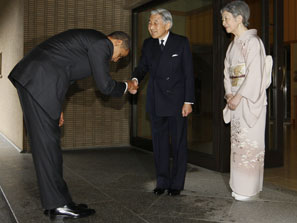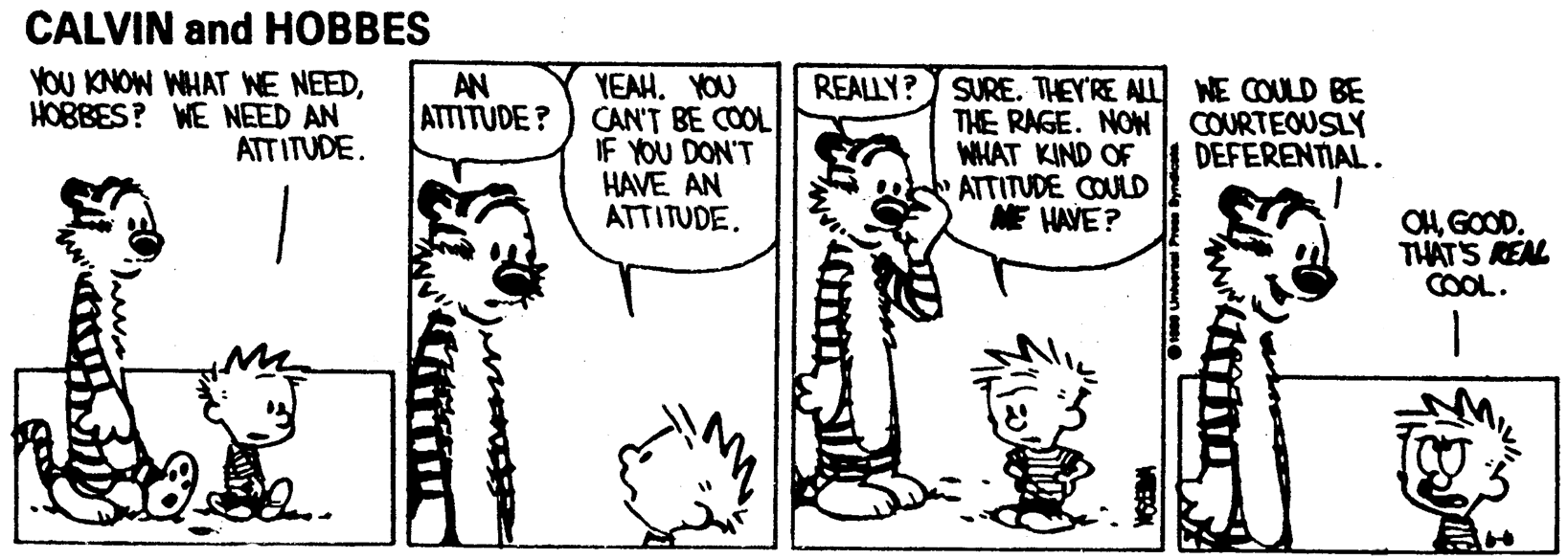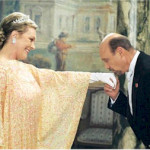Def·er·ence /ˈdefərəns/
Noun: humble submission and respect Synonyms: respect – regard – esteem – reverence – obeisance
Bear in mind that the Wikipedia definition of deference also provides the words submission, passivity and reverence as synonyms, which takes us into an altogether different dimension. There is however an element of sycophancy within deference, being “obsequious flattery.”) But consider the idea that deference “is the condition of submitting to the espoused, legitimate influence of one’s superior or superiors.” Who, you might reasonably ask, is your superior? Your boss at work, maybe? Your leaders? I’ll come back to this point later.
At one time respect and deference were order of the day in this country. A vast swathe of the population would happily tip their hats (they all wore hats in those days) or tug their metaphorical forelocks, not just to the celebrities of the day but anyone deemed worthy of such respect, a category which might include professionals such as doctors and lawyers, magistrates and self-made businessmen, and especially those deemed to be in a higher class bracket than yourself, such as the local squire, retired army officers, a knight or a dame or a Lord, even politicians – people of standing in their community.
At this point it’s probably worth saying that courtesy is a quite different beast from deference, since for many people it is respect for everybody and a feature of your common humanity, where deference is reserved only for people who fit your own personal criteria. For me, courtesy is an essential component of humanity, something I would offer everyone, not just those in need; respect has to be earned, being a marker for the quality of one’s behaviour and actions towards other people; but deference can be unearned and certainly not requited.
But getting back to the class-ridden nature of traditional British society and the ambiguous, prickly but ultimately deferential relationship between classes at many points, I offer two fictional examples to illustrate the point:
- First there is the classic “class sketch” from That Was The Week That Was, with John Cleese, Ronnie Barker and Ronnie Corbett showing the disparity between the classes. “I know my place,” says Corbett (click here.) Worth noting that in this example, deference is shown to the aristocrat, who has no money. In an American equivalent, the person at the top of the tree, earning greatest deference, would be the one with the most money.
- A sketch from Monty Python‘s Meaning of Life, set in a World War I trench, in which the working class soldiers buy their captain presents as a mark of respect (all clocks, due to a mix-up), then bemoan the toff’s reluctance to accept the gifts under the circumstances, but then they finally eat cake on doilies together before being killed in action (see here.)
But then, it didn’t need to be your career or social station that earned you respect within the community. At one time, respecting your elders meant just that – those of seniority, experience and wisdom, for they were deemed to know better. Just sometimes they did, too, though the increasingly rebellious streak among those teenagers every since the 50s, fuelled by their loud and discordant rock and roll music, meant that respect has been eroded. How disgraceful!
To earn respect and deference required you to dress well, so the common uniform for a man was a suit and tie, clean shirt and the obligatory hat, and for women skirts of a certain length. Acts of deference went beyond mere courtesy: a handshake is a formality now but then it was a ritual, though many more people at that time had been in the services and were therefore used to saluting as a form of institutionalised deference. Bows are symbolically deferential, without necessarily implying any such accompanying feeling. Much of the deference remaining in any society was and is a formal nicety, though I suspect that in times past it was meant with far greater passion than now.
In those days the flipside of public acts and behaviours was the veil drawn over private proclivities, citing the right to privacy, hiding a multitude of sins in the process. One might never know, if ever, until years later what someone had got up to behind the scenes, unless they were caught red-handed, and even then it might be hushed up to avoid any public scandal, though the gossips may whisper. A public reputation was everything.
By comparison, deference nowadays is reserved for the very few, and not necessarily the worthy. Media will scour the history of anyone in the public eye for signs of hypocrisy or a juicy scandal. Many read about these people and lap up every detail of their private lives, but accord them little or no deference. The most relevant reason is surely that we are no longer a society dominated by class, as once we were not so long ago. People are generally judged by their perceived merits, though in the case of celebs and politicians often the perceived merits woven around them by their PR consultants as much as parts of their persona they would rather not be aired.
So back to the Wikipedia article and other dimensions of deference:
Politics
Smolenski (2005) examines deference in colonial Pennsylvania, to see how claims to political authority were made, justified, and accepted or rejected. He focuses on the “colonial speech economy,” that is, the implicit rules that determined who was allowed to address whom and under what conditions, and describes how the qualities that inspired deference changed in the province from 1691 to 1764. The Quaker elite initially established a monopoly on political leadership based on what they believed to be their inherent civic virtue grounded in their religious and social class. By 1760, this view had been discredited and replaced with the general consensus that civic virtue was an achieved, not an inherent, attribute and that it should be determined by the display of appropriate manliness and the valor of men who were willing to take up arms for the common defense of the colony. Further, Pennsylvanians came to believe that all white men, not just wealthy property owners, were equally capable of achieving political voice. Martial masculinity, therefore, became the defining characteristic of the ideal citizen and marked a significant transformation in the way individuals justified their right to represent the public interest.[2]
Sociology
Erving Goffman, a Canadian-born sociologist and writer, explored the relationship between deference and demeanor in his 1967 essay “The Nature of Deference and Demeanor”. According to Goffman, a person with a poor demeanor will be held in lower esteem in the eyes of society. The same is true for people who behave in a good demeanor, however: society will hold them in a higher esteem. An example of this situation can be seen through the way a person acts in a social setting. e.g. a man pulling out a chair for a woman at a restaurant. On the other end of the spectrum, a person not bathing before they go to a fancy dinner party. These examples can be defined as presentational deference. Demeanor does not only limit itself to the actions of an individual, but also the appearance of an individual. A person offers themselves to a social group through a good appearance or a well demeanored appearance. When an individual has a well demeanored appearance it makes interaction between people easier. After a person is socially accepted to a group, it is expected that they will conform to interactional norms. Through acting on those norms, people receive deference.
Psychology
There is ongoing debate among psychologists as to the extent to which deference in a relationship is determined by a person’s innate personality type or is the result of a person’s experiences and conditioning. In interpersonal relationships, a partner can assume a submissive role to fit in or to make him or herself acceptable to the other partner, and can be a benign aspect of a relationship. On the other hand, it may be an indication of an interpersonal problem, such as partner abuse. If one or both of the people are experiencing chronic, pervasive emotional distress then the sex partners or individuals may require psychological evaluation.
In interpersonal relationships, some people prefer or are willing to adopt a submissive role in sexual activities or personal matters. The level and type of submission can vary from person to person, and from one context to another; and also is dependent on the other partner being willing to assume control in those situations. Some people can include occasional acts of submission in an otherwise conventional sex life, or adopt a submissive lifestyle.
Starting backwards, I don’t think you can speak of sexual submissiveness and deference within society to be one and the same thing, particularly when the former is much more about game-playing. Deference is surely more a cultural than a personal factor, for which the research of Geert Hofstede is especially relevant. Hofstede defined the dimensions of national culture, specifically:
- Power Distance (PDI): “this dimension expresses the degree to which the less powerful members of a society accept and expect that power is distributed unequally. The fundamental issue here is how a society handles inequalities among people. People in societies exhibiting a large degree of power distance accept a hierarchical order in which everybody has a place and which needs no further justification. In societies with low power distance, people strive to equalise the distribution of power and demand justification for inequalities of power.”
- Individualism versus Collectivism (IDV): “the high side of this dimension, called Individualism, can be defined as a preference for a loosely-knit social framework in which individuals are expected to take care of themselves and their immediate families only. Its opposite, Collectivism, represents a preference for a tightly-knit framework in society in which individuals can expect their relatives or members of a particular in-group to look after them in exchange for unquestioning loyalty. A society’s position on this dimension is reflected in whether people’s self-image is defined in terms of ‘I’ or ‘we.'”
- Masculinity versus Femininity (MAS): “the masculinity side of this dimension represents a preference in society for achievement, heroism, assertiveness and material reward for success. Society at large is more competitive. Its opposite, femininity, stands for a preference for cooperation, modesty, caring for the weak and quality of life. Society at large is more consensus-oriented.”
- Uncertainty Avoidance (UAI): “the uncertainty avoidance dimension expresses the degree to which the members of a society feel uncomfortable with uncertainty and ambiguity. The fundamental issue here is how a society deals with the fact that the future can never be known: should we try to control the future or just let it happen? Countries exhibiting strong UAI maintain rigid codes of belief and behaviour and are intolerant of unorthodox behaviour and ideas. Weak UAI societies maintain a more relaxed attitude in which practice counts more than principles.”
- And now also Long-term Orientation (LTO) and Indulgence versus Restraint (IVR).
Thus Hofstede was able to identify the cultural factors that enabled countries such as Japan and China to place a high dependency on deference and respect as part of lifestyle and especially business culture, linked to high degrees of masculinity and the importance of hierarchy, where other countries adopt a more democratic and open form of authority. Deference is by no means essential for success, personally or as a society.
As it is, I think a healthy dose of scepticism (and sometimes cynicism) about anyone is preferable to the blind faith of unthinking deference. As I said earlier, people do have to earn respect, but that certainly does not accord them the deference associated with living deities. You like people for what and who they are, but never forget that they are still human, still screw up and are not unique in their skills or talents – it’s all relative.
Is there anyone truly deserving of sycophancy? Some say royalty, though I violently disagree about that. It takes a lot for me to feel like throwing up, but the words spoken about our monarchy really do.










Is anyone here in a position to recommend Fashion Stockings and Tights? Cheers x
Is anyone able to recommend good Central Heating Radiators Business Contact List? Thanks 😀
By way of introduction, I am Mark Schaefer, and I represent Nutritional Products International. We serve both international and domestic manufacturers who are seeking to gain more distribution within the United States. Your brand recently caught my attention, so I am contacting you today to discuss the possibility of expanding your national distribution reach.We provide expertise in all areas of distribution, and our offerings include the following: Turnkey/One-stop solution, Active accounts with major U.S. distributors and retailers, Our executive team held executive positions with Walmart and Amazon, Our proven sales force has public relations, branding, and marketing all under one roof, We focus on both new and existing product lines, Warehousing and logistics. Our company has a proven history of initiating accounts and placing orders with major distribution outlets. Our history allows us to have intimate and unique relationships with key buyers across the United States, thus giving your brand a fast track to market in a professional manner. Please contact me directly so that we can discuss your brand further. Kind Regards, Mark Schaefer, marks@nutricompany.com, VP of Business Development, Nutritional Products International, 101 Plaza Real S, Ste #224, Boca Raton, FL 33432, Office: 561-544-0719